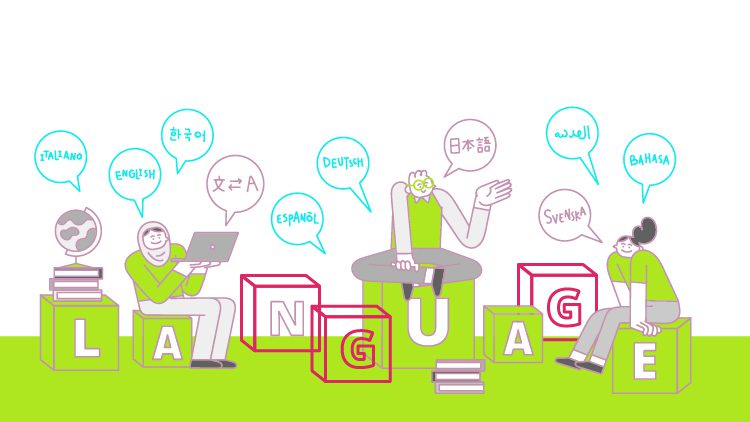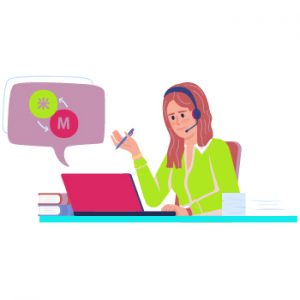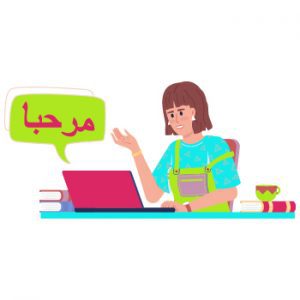
Why Do We Always Need Human Translators?
Human Translators
There are many circumstances where humans are needed to translate between two different languages. This is particularly important when the sender and receiver speak different languages, but it can also be useful when they speak the same language but have trouble understanding each other, such as in situations of accent, dialect, or background noise.
Since humans are so frequently used in translation, there must be some benefit to using humans instead of machines. So, this article will discuss several ways that human translators can provide unique value beyond the capabilities of machines alone.
The importance of translation
Translation is crucial for international business. Businesses that operate internationally need to provide accurate translations in order to reach the target audience and communicate product and service information accurately. Machine translation services are not a substitute for professional translations, because translation quality depends on the translator’s familiarity with culture and context.
Translation companies should have high-quality translation software and skilled professional translators, who should be diligent in providing accurate translations that convey the nuance of language without being too literal or too interpretive. Therefore, businesses must take this into account when considering using machine translation services.
Computer-assisted translation tools are valuable sources of information that can assist users during the entire process of translating text – they can help with proofreading and editing work as well as speed up the project by automating some tasks.


The business side of translation
Translation services are a multi-billion dollar industry, and one that will only increase in size as globalization takes hold. Given the growing importance of translation to businesses around the world, there is an increasing demand for professionals who can accurately translate material from one language to another. More and better translation also leads to a stronger global economy and improved cross-cultural understanding.
However, because of the current state of machine translation engines, most large companies are relying on professional translators for accurate business translations between two different languages. At this point in time, machine translation programs may be more successful when translating simple phrases or sentences rather than longer passages of text.
In other words, most types of high-level technical translations are best left up to human translations if they require accuracy in both content and context.
The cultural aspect of translation
To do an official translation, there is a need for professional and qualified translators who have a high level of language proficiency in both the source language and the target language. Neural networks are a more recent development in machine learning that has improved the speed and accuracy of automated translations.
However, there are always problems when implementing such systems, especially when rendering subtle semantic meaning or humorous context. The use of artificial intelligence means that human translations will become less relevant because all you’ll need is algorithms to teach computers how to speak in other languages.

The communication aspect of translation
Translation can be tricky because there are so many details to keep in mind: regional accents, dialects, and idioms that don’t always translate easily. Plus, the exact meaning of words in different languages can vary. These nuances make human translations even more necessary than machine translations since an individual can make the necessary changes for a specific situation and produce a quality translation project.
Using professional translation services is the best way to get accurate translations for your company or product. You’ll know you’re getting the right message out to all of your potential customers when you use this service. A good translator knows how to adapt their work based on the needs of the client they’re working with. It’s worth it to hire someone who understands their craft well enough and has experience translating materials such as brochures, user manuals, menus, websites and other types of documents which need to be translated from one language into another.

Why is human translation important?
It’s important to always have a human translator, even if you’re translating between two languages that are relatively easy to understand. There are many reasons for this. One reason is that there may be something ambiguous in the text that needs more context in order to be properly translated. For example, something I say might not make sense unless I have told you about my father and why he likes apples.
Another reason is because of cultural differences between languages. The most accurate translation will take these into account because different words may have different connotations based on the culture of the person reading them. In general, it’s better to hire someone who can produce a correct translation than an almost correct one that contains cultural inaccuracies.
The Vital Role of Human Translators
Human translators are the backbone of the translation industry, providing invaluable expertise and insight that machine translation tools cannot replicate. Unlike neural machine translation or online translators, human linguists possess a deep understanding of both the target language and the cultural nuances inherent in communication. Whether working independently as freelance translators or as part of a translation agency, these professional linguists are equipped to handle a wide range of materials, from legal documents to marketing content.
The translation process involves more than just converting words from one language to another; it requires skilled translators to accurately convey the original meaning while ensuring cultural sensitivity and preserving the integrity of the message. Experienced translators not only possess proficiency in the language pair but also have a keen eye for cultural references and idiomatic expressions that may not have direct equivalents in the target language. By utilizing computer-assisted translation (CAT) tools to enhance efficiency without sacrificing quality, human translators leverage their linguistic expertise and human intelligence to deliver accurate and nuanced translations.
While machine translation technology has advanced significantly in recent years, it still cannot match the depth of understanding and contextual interpretation provided by human linguists. Human translation services offer more than just instant translations; they provide a personalized touch and a level of assurance that only skilled translators can deliver. By combining language proficiency with cultural awareness, human translators bridge communication gaps and facilitate meaningful connections across linguistic boundaries.
Human translation vs Machine
Human translations have a number of advantages over machine translations, not the least of which is that they are better at translating colloquialisms. Machine translations can get many different meanings out of context and often rely on word associations to decipher a sentence. Humans can more intuitively intuit what words might be substituted when speaking other languages.
Machines translate by reading English text and trying to find similar words in another language, but often lose important meaning in the process. Machines also cannot understand how syntax works in other languages, which leads them to produce sentences with awkward wording or incorrect grammar.
Even if you’re just looking for simple definitions of words or phrases, it’s much easier to look up an online dictionary than it is for a computer algorithm to parse through natural language input for your desired meaning.
Frequently Asked Questions
How much does a human translator cost?
There are a number of factors that go into determining the cost of hiring a human translator. In general, if your work is more complicated or technical then you should expect to pay more for translation services.
Do we still need human translators?
The simple answer is yes. A number of factors exist that make human translators necessary, including language complexity and specific subject matter expertise.
Will human translators be replaced?
It is likely that translation from one language to another will become a faster and more automated process in the future. But for now, it is hard to replace the ability of human translators with computers, even as technology progresses.
Can human translators handle specialized or technical content?
Yes, human translators are equipped to handle a wide range of content, including specialized or technical material. Many translators specialize in specific industries or subject areas, allowing them to accurately translate complex terminology and concepts while maintaining clarity and precision.
How can I find a reliable human translator for my translation needs?
You can find reliable human translators through translation agencies, professional associations, or freelance platforms. Look for translators who specialize in your subject area or industry and have positive reviews or references from previous clients. It’s also essential to communicate your specific requirements and expectations clearly to ensure a successful translation project.

